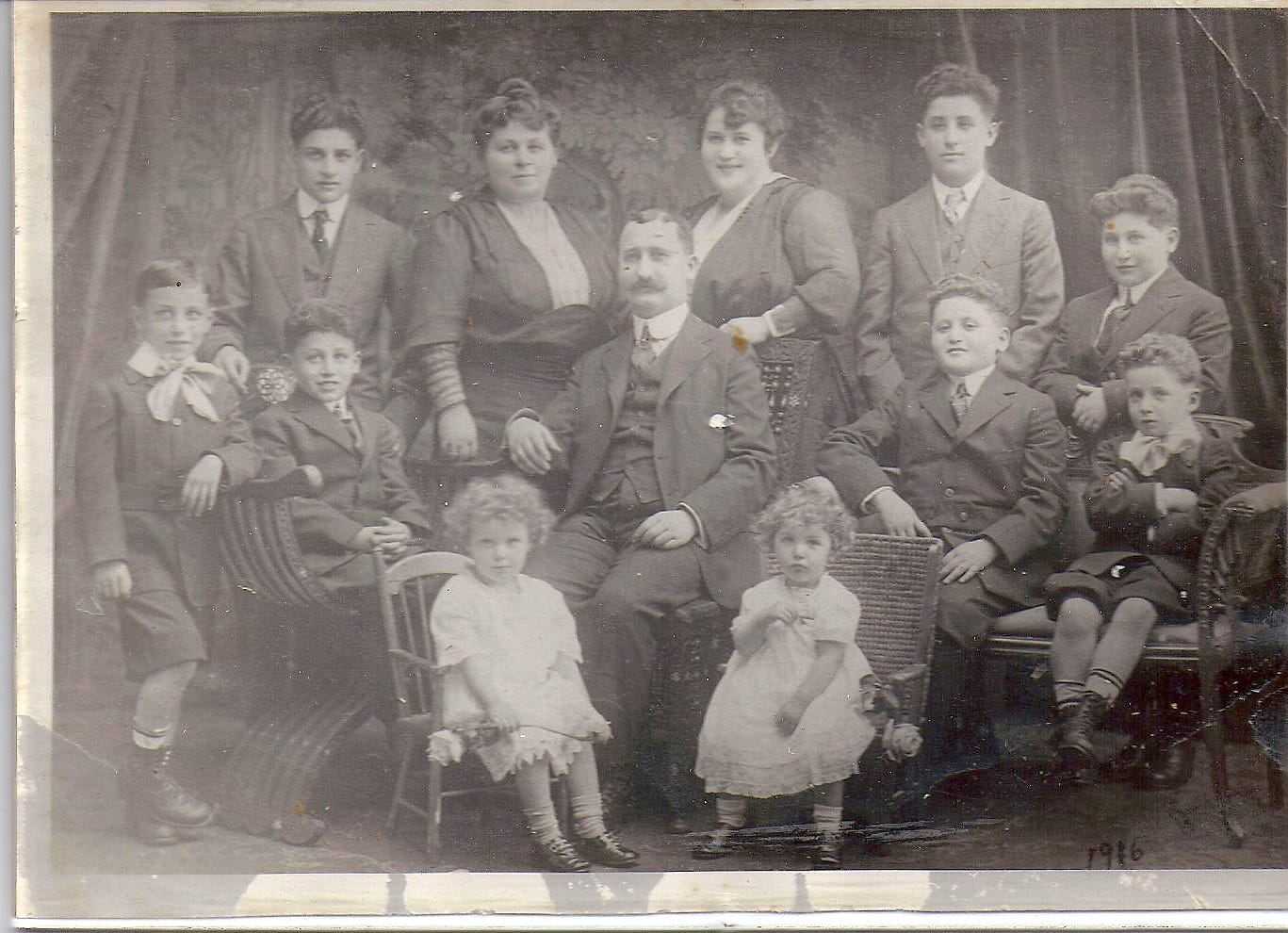Mickey and Freddy and Sidney and Teddy and Leo and Hobby and Danny, the brothers. Alice and Estie and Honey and Julie, the sisters. They all lived in a tenement above the family drygoods store on First Avenue in Yorkville in the early years of the last century. The mayhem and the bolts of cloth were presided over by my Budapest-born grandfather, Ludwig, and his imposing wife, Teresa. There was a story, mythic no doubt, that my grandmother would run through a list of five or six names before arriving at the boy she wanted to yell at for some infraction….dragging mud onto the carpet, endangering the life of his baby sister, getting into a fight with the kid next door. I have no idea what this life was like, the fire escapes, the stickball games. It’s as foreign as a fishing village, but when I imagine it for literary purposes, it is loud and chaotic. It smells like onions frying. There is no privacy and maybe no loneliness, although we all know you don’t have to be alone to be lonely. I was, let’s face it, an afterthought born in 1945, and it always seemed to me that the whole scene was like a table collapsing under the weight of paprikash and layer cake. Fleshy women and garrulous men thick in the business of buying and selling. This was my father, Sidney’s, family. In the end, he married up, meeting my poor, but elegant, mother in the late ‘20s and maneuvering cleverly to win the pitched battle for her hand. Imagine being such a prize. I think of them, the newlyweds, just returned from their honeymoon in Atlantic City. It must have been very unfamiliar, listening to the radio after dinner, trying to figure out what to talk about. No more family commotion to drown out their uneasiness. Coupling off, having a few kids, it was all very modern then, very chic. For my father, at least, it was not what he knew.
By the time I was playing jacks and sharpening number two pencils after the War, every family had its own designated four walls where the dramas and resentments could unfold behind closed doors. We assembled after dinner to worship Milton Berle on the Dumont. Otherwise, we kept our distance, Mommy at the stove, Daddy playing with his stamp collection. Trans-Jordan, Eritrea. The apartment high above Broadway was, if anything, more isolating than the new suburban split levels. Much of the time, I was stuck up there, looking out through the rusting grates of my bedroom window. Rapunzel-like in my room over the courtyard where the trash cans and the cats were assembled. I didn’t know anything about living in community until people started talking about it in the ‘60s. I found myself feeling a loss I couldn’t identify, nostalgic for something I had never experienced. All my life I have insisted on my privacy even as the murmuring of some hunter-gatherer tribal past tries to get my attention.
Meanwhile, out in the Bushwick section of Brooklyn Frank, is living in a six-family house with his grandfather and an assortment of aunts, uncles and cousins. The noise level in the working class Italian household continues to be ear-splitting and the cooking smells remain pungent. When his immediate family moves into their own place in Queens, fifteen minutes in the Buick, his mother is bereft. Her longing for her sisters is overwhelming, a constant ache. This raises the question…How are humans supposed to live? Are we meant to separate into nuclear families, small units, or are we supposed to live among our kin? What is the current state of the anthropology of living arrangements? This is not an academic inquiry for me now in my late seventies. In the summer and fall, Frank and I live in a condo outside of Minneapolis on a quiet neighborhood park with a pond that we share with scores of geese. But in the winter and spring when Minnesota is a sheet of ice, we live in the foothills of the Sierras on a parcel owned by Frank’s son. Nine of us, ranging in age from eighty to two, live in two structures on the property along with a dozen chickens. Last winter, in the experimental phase, I found that I was the only one of the nine of us who wasn’t completely at ease in this arrangement. It was as if my childhood in an elevator building in Manhattan marked me for life as a person who did not understand extended family. My link in the great chain of being is in need of fixing. I’ll have to go find one of those nearsighted refugee jewelers on upper Broadway to get it repaired.
*************************************************************************************************************
Many Voices, will appear on the last Sunday of each month and will feature contributions from the community of paid subscribers. In August, Many Voices will welcome Montreal-based editor and substack writer, Alice Goldbloom on the subject of her father’s Catholicism. Read Alice’s work at A Considerable Age.
If you are a subscriber and are having difficulty using the comment function, try logging on to your substack account at http://www.substack.com/sign-in. Use the email address linked to your substack account.
PLEASE CONSIDER UPGRADING to a paid subscription to support seventysomething, have access to the archives, and become a contributor to and a reader of Many Voices. Your ideas are always welcome.
*************************************************************************************************************
Copies of my 2019 essay collection, Twilight Time: Aging in Amazement, are available directly from me (signed) or from Amazon or your local bookseller.
*************************************************************************************************************






Vivid and thought-provoking, as always. And I loved that last line!
I can’t get enough of your writing, Susie. You have such a gift. Thank you once again.